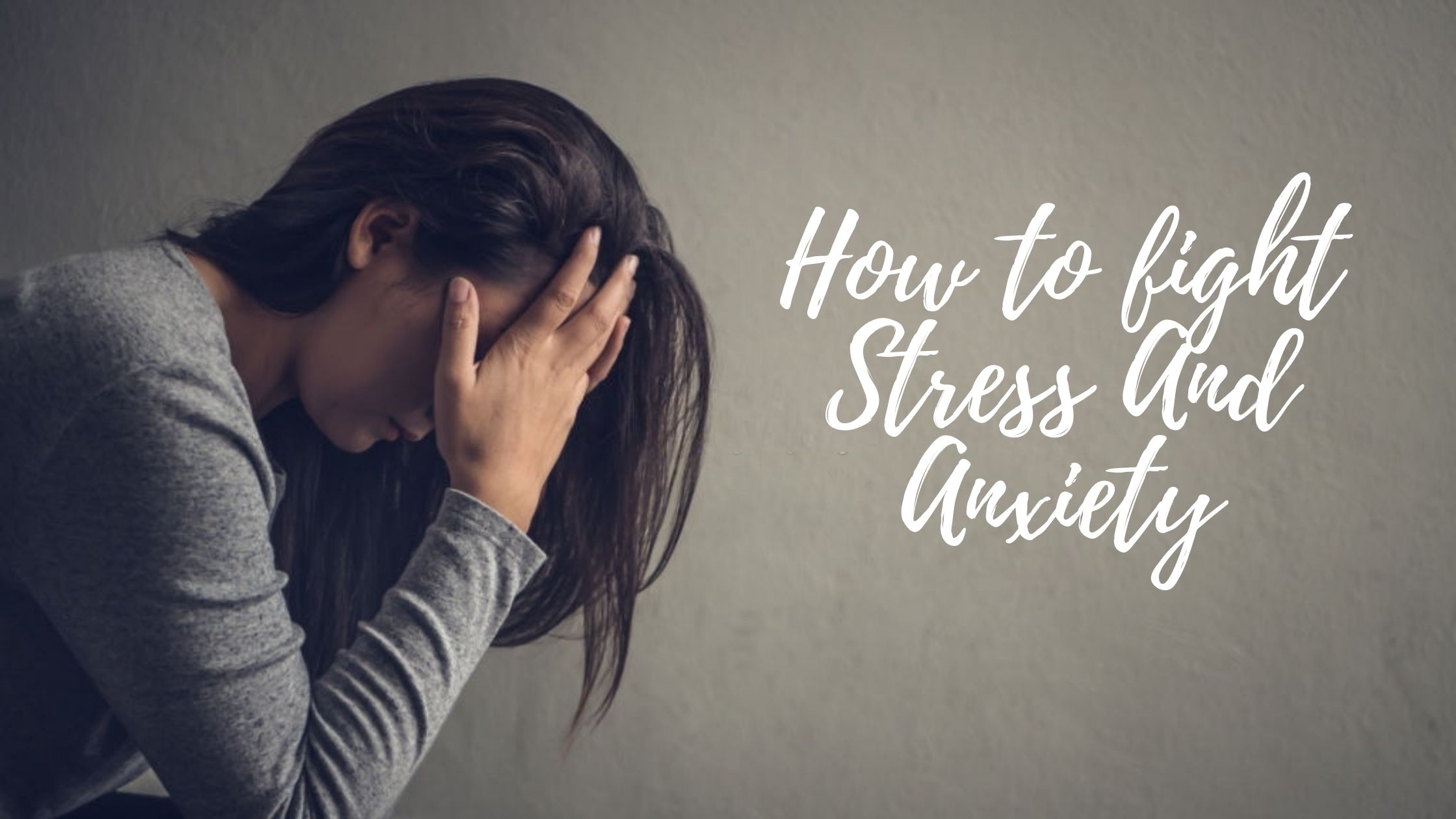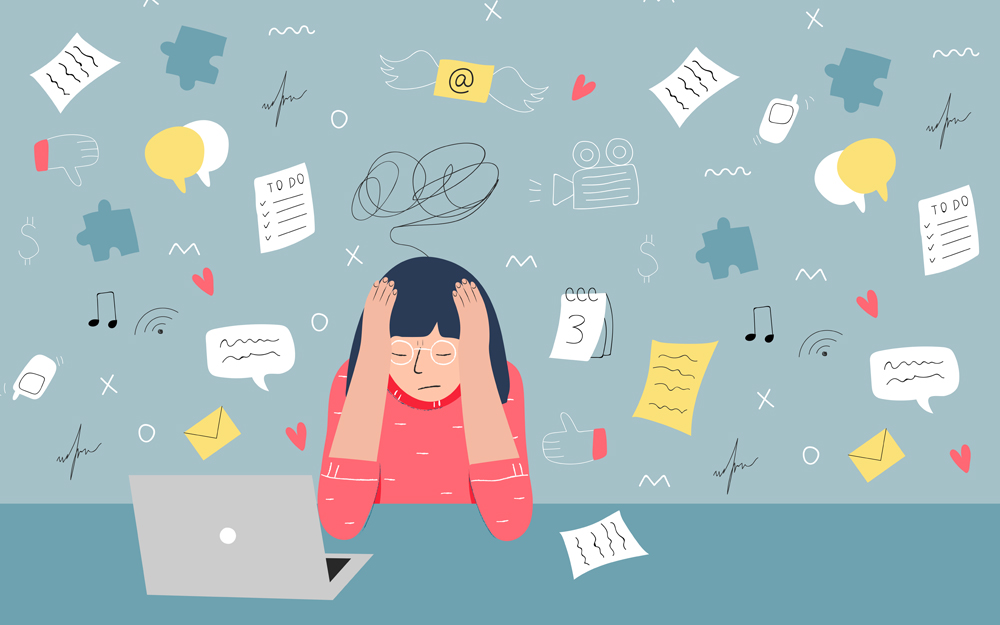We all have experienced the moments in life when we were anxious and stressed out due to various reasons. Some readers, reading this article, might even be dealing with stress right now.
It’s quite common to suffer from this mental state and we all know how it feels like to be in such an overwhelming situation. It, in many instances, numbs our mind making us fail to function properly.
It often results in hindering our daily activities. Be it cooking, working, cleaning, driving and studying, and likewise. We cannot put our complete focus and attention that are required to finish particular tasks. Thus, we end up facing many problems afterward…
Even the smallest tasks can become difficult to complete when you’re under the negative influence of stress…
Things can get really severe if stress starts to take a toll on your well being and you should look out for any danger that stress can cause you.
There is no one in this world that can say, “I never felt stressed or anxious in my life”, because it’s an inevitable reality of life that everyone at some point in time has faced, is facing or will be facing it.
You might find it difficult to control certain circumstances but you can always control how you respond to them.
In this article, we will give you 5 ways to reduce the overriding effects of stress that can mess with your performance.
Stress is when you feel tension either emotionally or physically. It may occur in any event consequently making you feel vexed or nervous.
It can be categorized in four different types, as:
- Acute stress
- Chronic stress
- Episodic acute stress
- Eustress
Acute stress is a short-term kind of stress that every one of us experiences in our everyday routine which doesn’t last long.
Chronic Stress can often last for a long period of time and is often a by-product of a bad experience(s).
Episodic acute stress is when people face frequent bouts of acute stress. People dealing with this type of stress are always disorganized and seem to be in a hurry.
Eustress is considered to be a positive kind of stress and can keep you galvanized and excited. It’s when you try to meet a deadline or feel the itch to get a job done…
Now without further ado let’s dive into 5 ways that can help you cope with stress
Exercise
Wondering how physical movements can relieve you from mental stress? Well, studies have proved that exercise does wonders not only to your body but your mind as well.
It has now become a cliché that in order to remain in a good state of mind and health you need to exercise. There’s also a saying regarding exercise, “Exercise not only changes your body, it changes your mind, your attitude, and your mood.” and also “Good things come to those who sweat.”
This holds true for everyone. Physical activity changes your brain’s neurotransmitters, also known as endorphins.
Exercise also improves your sleep that is crucially disrupted by stress which in return makes you less lethargic and worn out.
Aromatherapy
According to a source, Aromatherapy is a holistic healing treatment that makes use of natural plant extracts to magnify health and well-being.
Only recently this kind of stress coping treatment has gained recognition that uses “aromatic essential oils medicinally” to strengthen body and mind.
Balanced Diet
We all are familiar with the “We are what we eat” phrase that Hippocrates said centuries ago and it still holds true for today.
A poor diet can only add fuel to the fire during such circumstances. Consumption of food that contains high fat and an increased amount of sugar can cause several health problems. A well-balanced diet can tame stress in several ways than you can imagine.
It’s best to incorporate:
- 5 portions of a variety of fruit and vegetables
- base meals on high fiber starchy foods like potatoes, bread, rice or pasta
- some dairy products
- beans, pulses, fish, eggs, meat and other proteins
- unsaturated oils and spreads
Meditate
Those who have developed a habit of meditating during mental strain reported a significant positive change. Meditation is a simple, easy and a handy way that doesn’t even require any particular instrument or equipment.
It helps you relax, improves your focus, and eliminates an unsettling stream of thoughts. Meditation also helps you gain a new perspective. Increase self-consciousness, impede negative thoughts and emotions, strengthen your imagination, and proliferate patience and tolerance in you.
There are many types of meditation that you can include in your daily routine, to name a few
- Guided meditation
- Mantra meditation
- Mindfulness meditation
- Qi gong (CHEE-gung)
- Tai chi (TIE-CHEE)
- and Yoga
Journaling
It is a well-established phenomena that journaling can minimize stress. According to a study, penning your thoughts and then physically throwing away the paper that you wrote them on can have a mind-relieving effect.
It allows you to assemble thoughts that are jumbled up in your mind and enables you to make sense of confusing feelings or events. People who employ this effective technique as a tool to manage stress reported that they felt relieved afterward. Journaling has a number of benefits:
- It’s problem-solving
- It calms and clears your mind
- Prevents negative thoughts
- Enhances self-awareness
- It helps track your progress
- Helps you vent
- promotes creativity
Conclusion
Stress can be quite detrimental to your mind and body in more than one way. Not taking such conditions seriously or ignoring these indications can significantly undermine your relations with your loved ones, your progress, your entire personality, and the environment as a whole.
Addressing these psychological issues on time can bring about vital change to your life, enabling you to enjoy every single moment of life to the fullest and function smoothly.















0 Comments